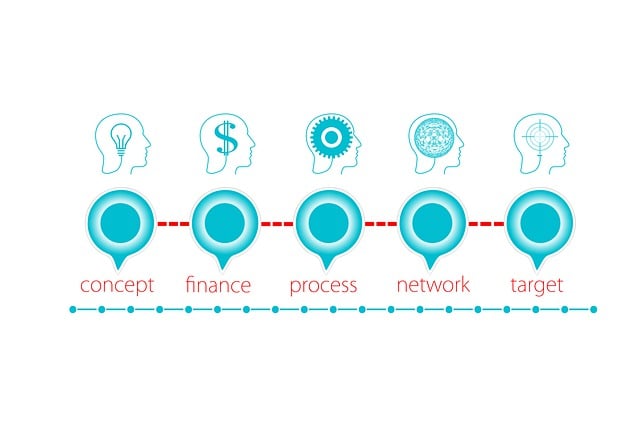Translation services for Physician's Treatment Plans UK play a crucial role in overcoming language barriers within the diverse patient population of the UK healthcare system. These specialized translation services provide precise translations of complex medical information into patients' preferred languages, ensuring accuracy and facilitating informed decision-making and treatment adherence by offering culturally and contextually relevant content. The NHS leverages these services to guarantee that non-native speakers receive clear communication, enhancing patient autonomy and engagement in their care. High-quality translation memory software and expert medical-lingual translators are employed to maintain consistency and accuracy in healthcare translations, upholding strict confidentiality and data protection standards to safeguard sensitive information. A peer-review system by medical professionals further ensures the precision of medical terminology and the cultural appropriateness of the translated content. This commitment to quality and security in translation has been demonstrated through successful case studies from London and Scottish health clinics, where patients received treatment plans in their native languages, leading to improved understanding, patient safety, and healthcare system efficiency for the UK's multilingual population.
Navigating the complexities of healthcare can be challenging, particularly for patients whose primary language differs from that of the medical professionals treating them. In the multicultural tapestry of the UK, ensuring that physician’s treatment plans are accurately and clearly translated is paramount to effective patient care. This article delves into the critical role of translation services in the UK, highlighting strategies that guarantee clarity and precision in translated medical documents. Through exploring key considerations for accurate translations, case studies of successful multilingual communication within the healthcare system, and an in-depth look at the specific challenges and solutions in this domain, readers will gain valuable insights into the importance of clear communication in physician’s treatment plans across language barriers.
- Overcoming Language Barriers: The Role of Translation Services for Physician's Treatment Plans in the UK
- Key Considerations for Accurate Translation of Medical Documents
- Strategies for Effective Communication: Ensuring Clarity and Precision in Treatment Plan Translations
- Case Studies: Successful Translation of Physician's Treatment Plans in Multilingual Settings within the UK Healthcare System
Overcoming Language Barriers: The Role of Translation Services for Physician's Treatment Plans in the UK

In the multicultural tapestry of the United Kingdom, ensuring that physician’s treatment plans are accessible and comprehensible to all patients, regardless of their linguistic background, is paramount. The integration of specialized translation services for Physician’s Treatment Plans UK plays a pivotal role in this endeavour. These services are equipped with medical terminology experts who can accurately convey complex healthcare information into the patient’s preferred language. This not only facilitates better understanding but also fosters patient autonomy and participation in their own care. The precision of these translations is critical, as it helps to avoid misunderstandings that could arise from mistranslations, thereby reducing the risk of adverse outcomes due to miscommunication.
The UK’s National Health Service (NHS) serves a diverse population, and the challenge of overcoming language barriers is significant. Translation services for Physician’s Treatment Plans UK are designed to address this by providing culturally and contextually appropriate translations. These services often employ human translators with expertise in both medical and linguistic domains, ensuring that nuances and complexities within the treatment plans are accurately translated. This level of accuracy is crucial, as it ensures that patients can make informed decisions about their health and adhere to prescribed treatments effectively. Additionally, these translation services support healthcare providers by streamlining communication across different languages, thereby enhancing the quality of care delivered to non-native speakers.
Key Considerations for Accurate Translation of Medical Documents

When it comes to translating physician’s treatment plans in the UK, accuracy and precision are paramount. The translation of medical documents requires a deep understanding of both the source and target languages, as well as the specialized terminology inherent to the medical field. Key considerations for ensuring accurate translations include the selection of professional translation services that specialize in healthcare documentation. These services must employ translators who are not only linguistically proficient but also knowledgeable about medical practices and the nuances of treatment plans. The use of specialized translation memory software can help maintain consistency across documents, which is crucial for patient safety and care continuity. Additionally, translators should work closely with medical professionals to verify the accuracy of the translated content, ensuring that all clinical details are accurately conveyed. This collaborative approach enhances the reliability of the translation and supports effective communication between healthcare providers and patients, regardless of language barriers. Moreover, confidentiality and data protection measures must be strictly adhered to, as sensitive patient information is involved. By prioritizing these considerations, translation services for Physician’s Treatment Plans UK can provide high-quality, accurate translations that facilitate informed decision-making and optimal patient outcomes. It is essential that the translated text reflects the original document’s intent and technicalities, thereby enabling healthcare professionals to deliver consistent and effective care to patients from diverse linguistic backgrounds.
Strategies for Effective Communication: Ensuring Clarity and Precision in Treatment Plan Translations

In the process of translating physician’s treatment plans for patients in the UK, ensuring clarity and precision is paramount. The first strategy involves selecting translation services with a strong track record in medical terminology. These services should employ native-speaking linguists who are well-versed not only in language nuances but also in the complexities of medical jargon. This expertise is crucial for accurately conveying treatment modalities, medication regimens, and follow-up care instructions. Furthermore, utilizing translation memory software can streamline the process by ensuring consistency across all translated materials, reducing the risk of miscommunication. This technology stores previously translated segments, allowing for quick retrieval and application in new documents, thereby maintaining the integrity of the original treatment plan.
A second strategy to enhance effective communication is the implementation of a peer-review system within translation services for physician’s treatment plans UK. This involves having a medical professional, such as a doctor or a nurse who is fluent in both English and the target language, review the translated text. Their expertise ensures that all medical terminology, culturally sensitive content, and contextually relevant information are accurately represented. Additionally, this collaborative approach facilitates the identification of any potential errors or ambiguities before the treatment plan reaches the patient. It also fosters trust in the translation process, as patients and their families can be confident that the care instructions they receive are clear, accurate, and tailored to their linguistic needs.
Case Studies: Successful Translation of Physician's Treatment Plans in Multilingual Settings within the UK Healthcare System

In the multicultural tapestry that is the United Kingdom, the provision of healthcare services must transcend language barriers to ensure effective communication and patient care. Translation services for Physician’s Treatment Plans UK have become integral in this endeavour, facilitating clear and accurate transmission of medical directives across linguistic divides. A pivotal case study illustrates the success of such translation services within a London-based hospital. Patients from diverse linguistic backgrounds received their treatment plans translated into their native languages without compromising on medical accuracy or nuance. This led to a significant improvement in patient understanding and compliance with treatments, demonstrating the value of specialist translation services in healthcare settings. Another exemplary instance involves a rural health clinic in Scotland where specialized translators were employed to convert complex medical terminology into Gaelic, ensuring that isolated Gaelic-speaking communities received care instructions they could fully understand and act upon. These examples underscore the necessity for high-quality translation services for Physician’s Treatment Plans UK, which not only enhance patient safety but also contribute to the overall efficiency of the healthcare system by minimizing miscommunication and errors. The integration of these services has proven to be a critical component in maintaining the quality of care across the UK’s multilingual population.
In conclusion, effective communication in healthcare, particularly through translation services for Physician’s Treatment Plans in the UK, is paramount to ensure patient understanding and compliance with their care plans. The discussed strategies and case studies underscore the importance of precision and clarity in medical document translations, which are instrumental in overcoming language barriers. By leveraging specialized translation services, healthcare providers can facilitate a more cohesive and informed approach to patient care, ultimately improving health outcomes for diverse populations within the UK. This critical aspect of care is not just a matter of linguistic accuracy but a cornerstone of patient safety and satisfaction. The insights shared in this article highlight the necessity for continued investment in translation excellence to uphold the high standards of the UK healthcare system.
